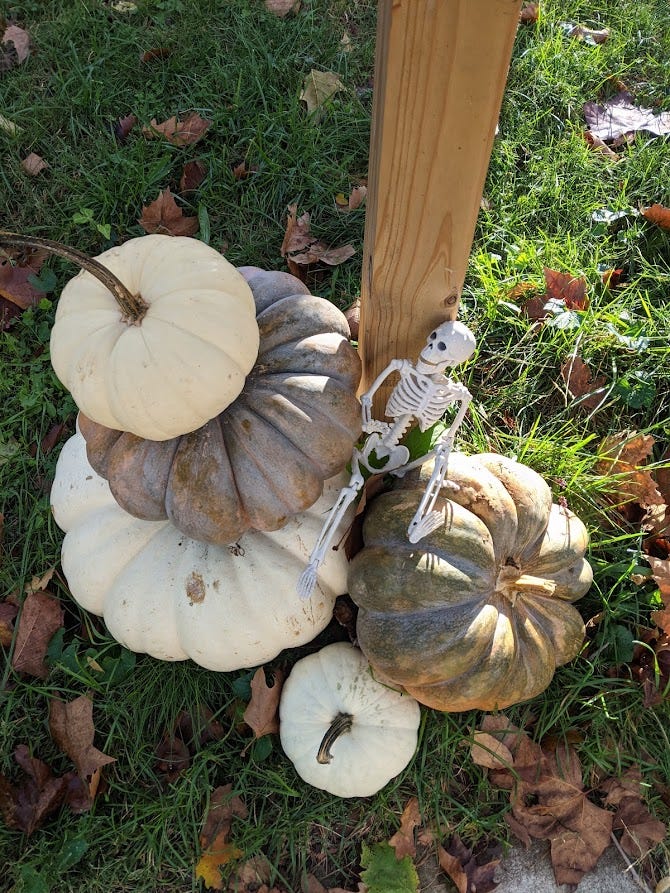

Discover more from Write More, Be Less Careful
I’m thinking again, always, about time, and I’m thinking in particular about the speed of writing. Writers have probably always envied each other’s work and perhaps believed that other writers worked more quickly, more easily, with less self-recrimination and nail-chewing or gnashing of teeth. But the internet makes it much easier to feel like everyone else is speeding along, typing and typing and typing and then publishing all of those words. It’s easy to log on to twitter, get bombarded with the seemingly rapidfire successes of writers you know and writers you don’t and despair.
As we wrap up the Back to Writing series, I want to remind you (and me!) that speed is not the point.
One of the enduring obsessions of this newsletter (and the PANK series that preceded it) is how our culture’s obsession with productivity harms creative practice. I think there’s a lot of value in finding ways to count what matters to you about your writing practice. But I also think that when we’re counting wrong—when we just count publications or likes or twitter followers or whatever—it’s not just dispiriting, but actually separates us from what matters about our creative life in the first place.
In the first newsletter in the Back to Writing series, I encouraged you to set a vision for your writing practice that would include both product and practice. I wrote about it like this:
Here’s what I mean: the product is the actual thing you’re going to produce. You might want to draft a new chapter or two, or revise an essay or a handful of poems. You might have a target in terms of word count. Those tangible outcomes are important because achieving them builds confidence. (And allows you to make progress toward actually getting the writing out into the world.)
But I also want you to think about your writing process. How do you want to feel about your writing practice and the way that writing fits into your life? If you’ve been struggling to make time for writing, your process goal might be to write x days per week, or to write for y minutes a week. Maybe you’re struggling with self-doubt and actually finishing projects; in that case, you might set a goal of writing with confidence and sharing your work with someone. (I’ve got tips on writer’s block and imposter syndrome coming in this series!) Or maybe you struggle with digital distractions when you write and want to recommit to sustained writing time, rather than writing slash twitter slash email checking sessions. (Does the specificity of that final item give a clue about what I’m working on this fall?)
So as we wrap up this series, I want to send an encouraging nudge to take a look at your progress on the product—and to also remember to think about your practice. What strides have you made? What have you learned about yourself as a writer?
The newsletter’s going to go on a little hiatus for a few weeks while I wrap up some of my own writing projects. If you’re looking for inspiration in the meanwhile, there’s an entire April worth of poetry prompts in the archives, starting with this introductory newsletter. I’ll be back in December with writing prompts, a few more interviews, and thoughts about writing our way into the new year. In the meanwhile, I’d love to hear from you. How is your writing going? What’s helping you? What are you struggling with?
Here’s something that’s the opposite of speed, the opposite of logging on to twitter to shout your own successes or be awed by others: the slow, daily walk of regular writing and moving through the world with a writer’s eye. That quotation I used as the title for today’s newsletter—Do not hurry; do not rest, a Goethe quotation I came to through Annie Dillard’s The Writing Life—reminds of that sustained urgency. I believe that writing can orient you differently to the world and help you attune more fully to what’s happening around you. That’s what lasts.
I’d love to hear from you. You can always reply to this email, comment below, or find me on twitter (@nancy_reddy) and instagram (@nancy.o.reddy).
Subscribe to Write More, Be Less Careful
why writing is hard & how to do it anyway













...What's also interesting to me is how, while one would think that decades of writing would make so many different processes available to a person, and it's true, the time does bring deepened awareness and faith-- at the same time, we really do get stuck in old habits and doubts, and need someone else to help us get out of them. So again, thank you.
Nancy, This was great. Thank you so much for your wise and nuanced insights each week, for knowing how to re-ignite and calm the spirits at once. Happy to say I managed to reach most of my goals, and most important, feel that in this short time I've become more mindful of my processes-- habits of mind I've cultivated for years and am happy to do away with, along with the new fun change-ups that you've shared along the way.
One of my favorite new practices is building up to a concentrated, short focused half hour or so after a long stretch of pleasurable reading and even walking. Enables me to let go, refuel, but also to focus and quiet the mind-- and then ups the stakes by shutting down my critical mind as I try to make it to the finish line of a draft before the time is up... For now, that's been fun.
Thank you for everything, Nancy! You're a terrific teacher.